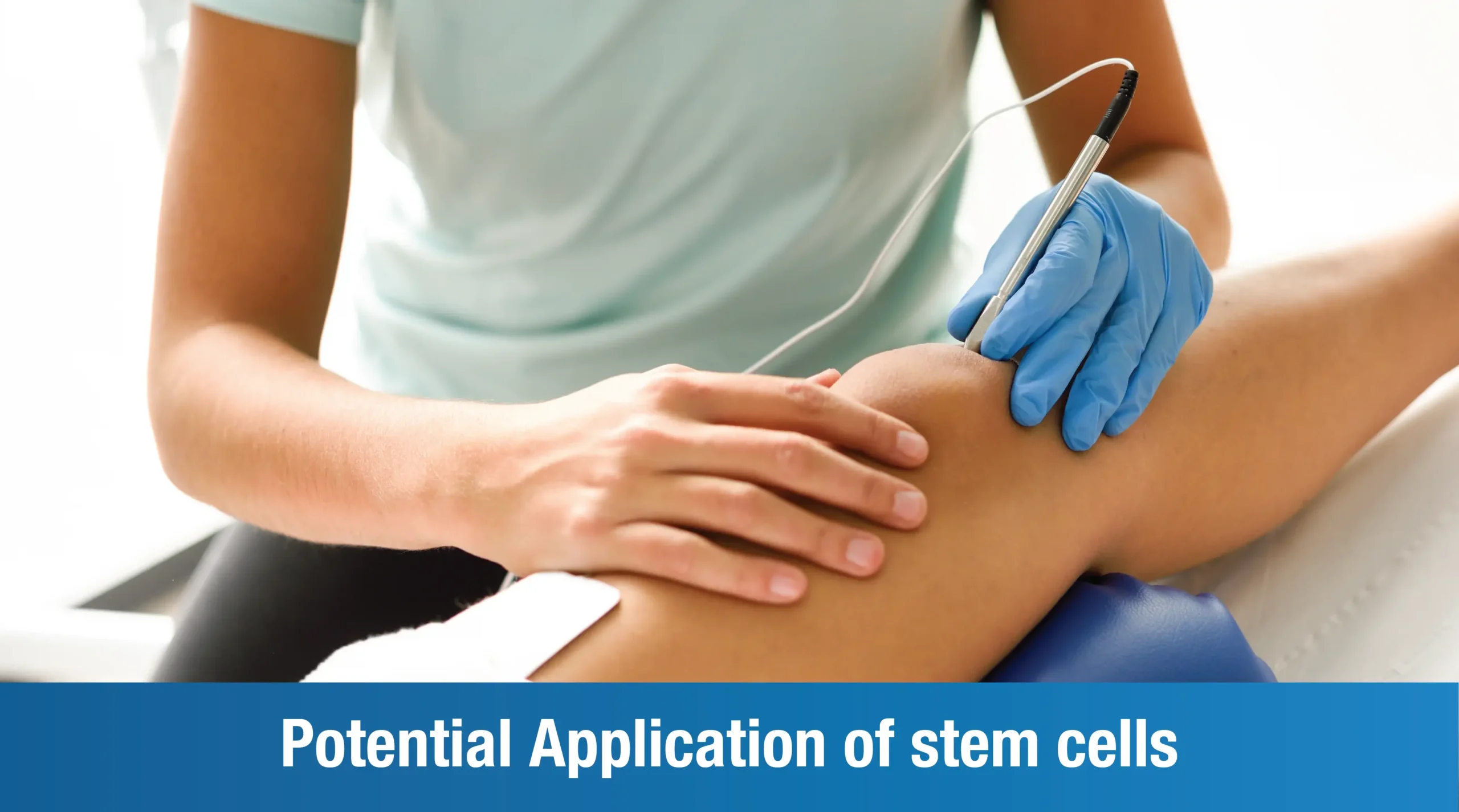
Application of Cells
Cell therapy has helped in bringing about incredible breakthroughs in the field of medical research. With Cell therapy, we move a little closer to identifying treatments/solutions for some of the most devastating diseases.
At Plexus, we use Cell therapy to manage a number of neurological diseases, many of them even life-threatening. Helmed by Dr Na’eem Sadiq, India’s most-awarded Cell specialist and neurologist, Plexus offers a range of customised regenerative rehabilitation plans for neurological diseases.
Let’s read on to know more.
What is Cell therapy?
Cell therapy helps in repairing or restoring function of diseased, dysfunctional, and/or injured tissue by injecting Cells (or their derivatives). It modulates the body’s immune system and helps in reducing inflammation.
Cells are undifferentiated progenitor cells procured from the human body. These cells have the ability to transform and/or multiply into specialised cells. The process by which Cells turn into specialised cells is called Differentiation.
Injected Cells can also provide immunomodulation, secrete growth factors, and also produce supporting cells that can protect damaged motor neurons from further damage and degeneration.
Neuroprotection is one of the primary objectives of regenerative treatments like Cell therapy.
Types of Cell therapy
Autologous therapy : the patient is treated with cells procured from their own bone marrow, blood, or fat tissue
Allogeneic therapy : the patient is treated with cells from external donors
Link types of Cells blog
Blog link
Application of Cells
Once the Cells are identified and classified, their self-renewal and differentiation capacities can be ascertained. This can help determine the disease/disorder they may be used to treat.
The application of Cells in regenerative medicine is irrefutable. Cells can be used in the treatment of:
- Inflammatory conditions
- Orthopedic conditions
- Trauma-induced conditions
- Autoimmune diseases
- Neurological disorders
- Metabolic disorders
- Hematopoietic diseases
- Cardiovascular illnesses
- Gastrointestinal disorders
- Kidney disorders
- Lung disease
- Liver disorders
- Cancers
- Skin disorders
- Ocular disorders
The human body’s ability to self-heal is nothing short of miraculous. However, with age, this ability can also debilitate. Therefore the regeneration or repair of damaged tissue in the elderly is significantly slower, and sometimes deterred due to a neurodegenerative condition like Parkinson’s or Multiple Sclerosis.
Cells remind your body of its self-healing capacities. Injected Cells kickstart your body’s self-healing mechanism and help in the management of symptoms, and slowing the progression of the disease. Cells have also been known to delay ageing.
Research indicates that Cells also have the potential to regenerate organs owing to their distinct ability to secrete growth factors.
What can Cells be used for?
We already know that Cells are used in regenerative medicine to treat a variety of conditions. Cells can repair or regenerate damaged tissue, as well as modulate the body’s immune system. But is that all Cells are capable of? No!
The application of Cells may catergorised into:
- Disease modeling: Researchers use Cells to generate disease-specific cell lines. These cell lines are then studied to determine the progression of the disease, triggers, and treatments. Through this approach, researchers can effectively study degenerative, neurological, and genetic disorders.
- Personalised medication: Patient-specific therapies and treatments is another area in which Cells may be used. These treatments and medicines are specifically tailored keeping in mind the patient’s family history and disease progression.
- Gene therapy and genetic editing: Inherited diseases may be treated by injecting genetically modified Cells.
Neuro regenerative rehabilitation at Plexus
At Plexus Neuro and Cell Research Centre, we use autologous mesenchymal Cells derived from the patient’s body to treat a range of neurological disorders.
Mesenchymal adult Cells (MSCs) are adult Cells with anti-inflammatory, immunomodulatory, self-renewal, cell-division, signaling, and differentiation properties. They can divide and develop into many specialised cell types in specific organs and/or tissues, and are considered to be ideal for organ transplantation procedures.
The multipotent nature of MSCs make them the ideal choice for treating a variety of neurological disorders. Injected MSCs can repair/replace neurons in the brain, spinal cord, and/or nerves throughout the body that have been damaged due to illness.
As India’s first ISO-certified Cell research centre, Plexus offers regenerative rehabilitation for:
- Cerebral Palsy
- Parkinson’s
- MND
- Multiple Sclerosis
- Spinocerebellar Ataxia
- Spinal Cord Injury
- Stroke
- Brachial Plexus Injury
Additionally, Plexus also offers physiotherapy, occupational therapy, speech and language therapy, cognitive rehabilitation therapy, behaviour therapy, swallowing therapy, and more.
If you wish to know more about our regenerative rehabilitation programmes or any of our other services, reach out to us today.
Call +91 89048 42087 | 080-2546 0886
080-2547 0886 | 080-2549 0886
FAQs
Like human Cells, plant Cells are also progenitor cells that have the ability to self-renew, differentiate, and proliferate. Presently, plant Cell extracts are used with other active ingredients to treat various skin conditions.
What diseases can Cells cure?
Cells do not cure diseases. But they help manage symptoms and slow down the progression of several neurodegenerative, cardiovascular, ocular, inflammatory, autoimmune, orthopedic, and other diseases.
What are the benefits of Cells?
Apart from being a risk-free and non-surgical procedure, Cell therapy at Plexus helps in –
- Managing symptoms
- Improving quality of life
- Enhancing everyday functionality
- Preventing further nerve damage
- Reducing inflammation and improving immune function
- Fostering brain development
- Speedy post-procedure recovery










